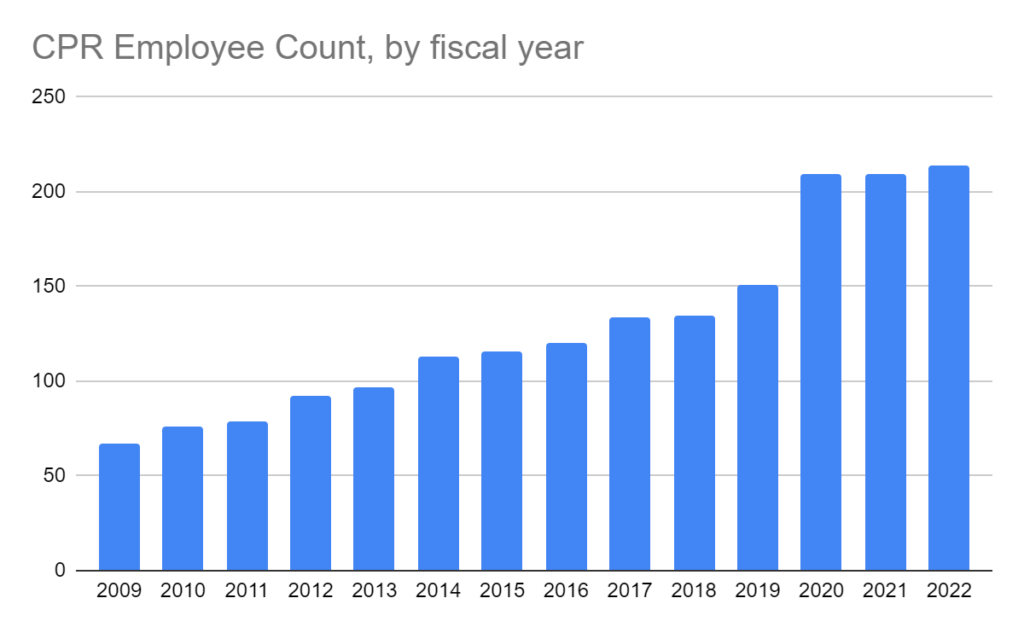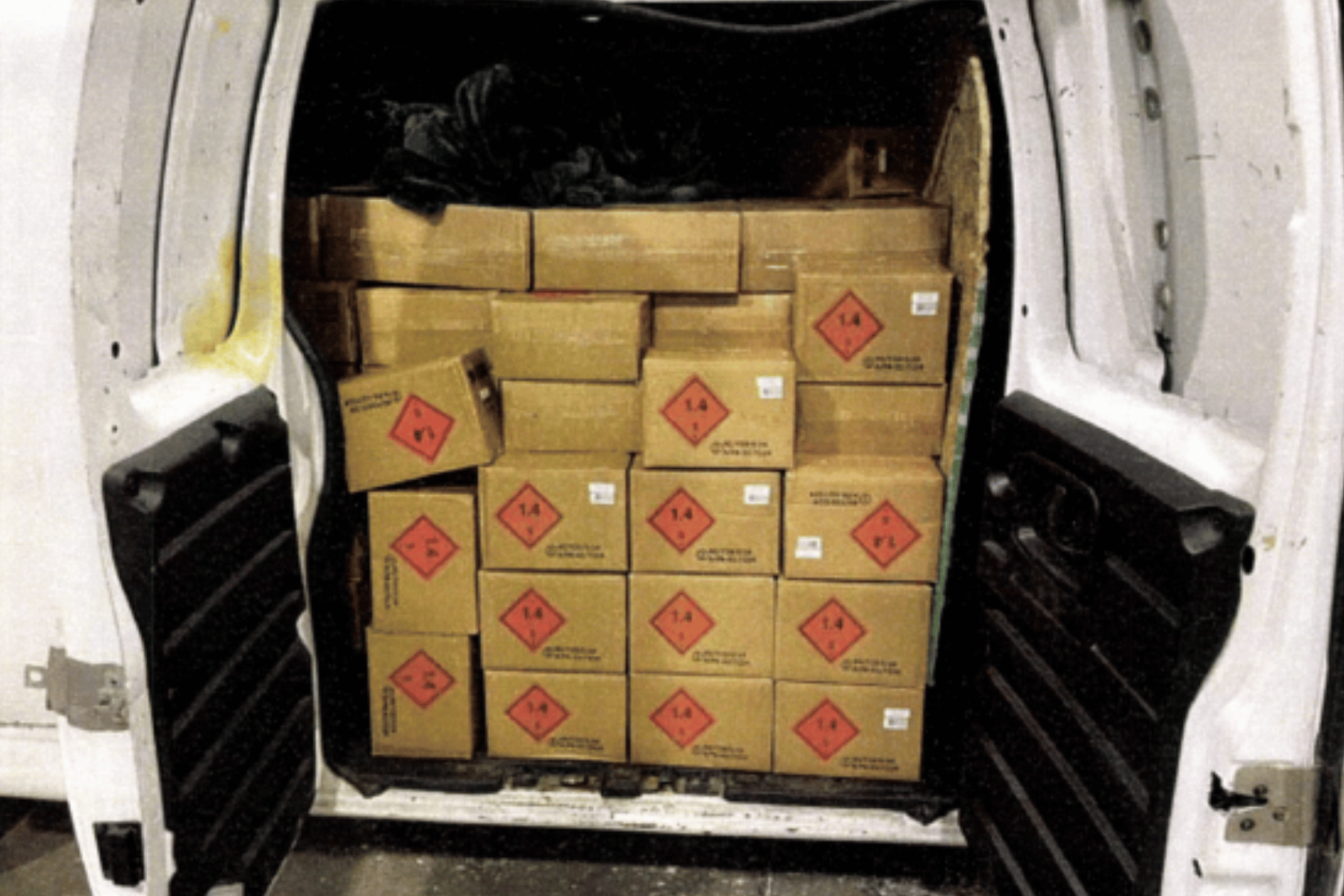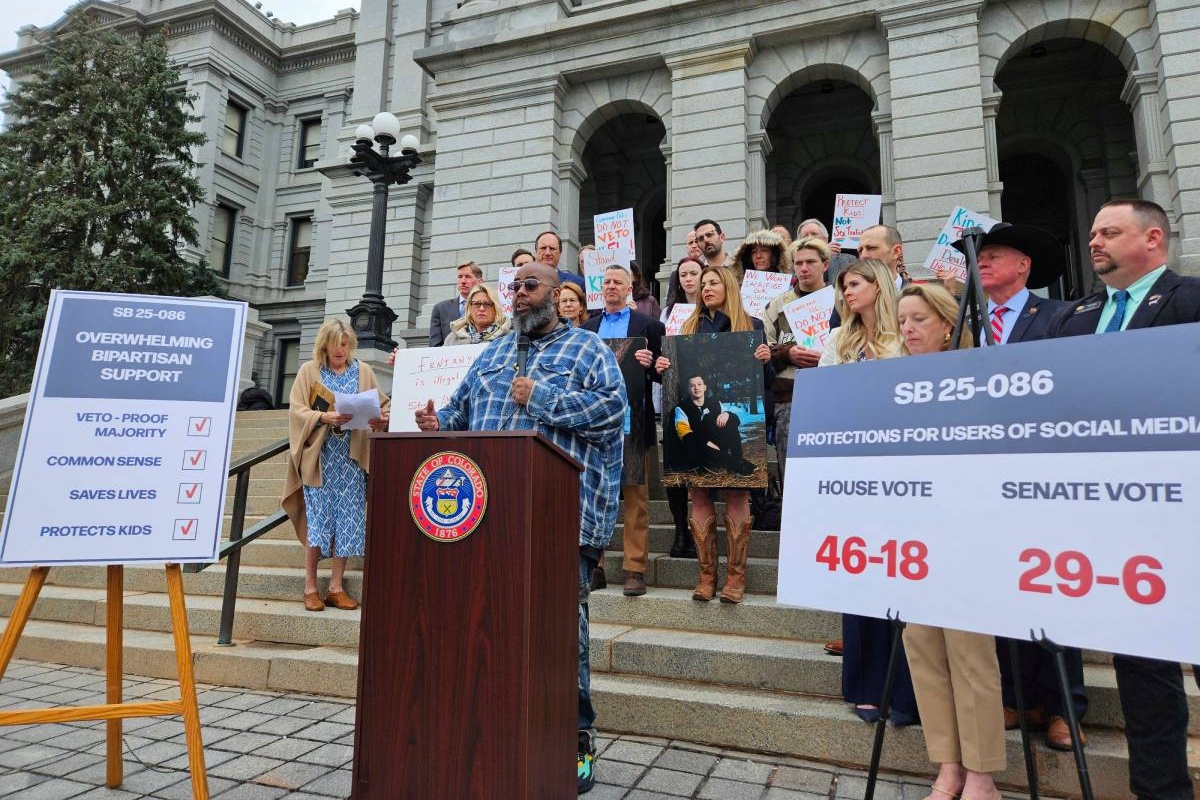
Colorado Public Radio laid off 15 employees this week, the largest cut to the public broadcaster’s payroll in at least a quarter of a century.
Employees were laid off Tuesday and Wednesday, primarily in the audio and podcast production departments. The CPR newsroom, which has been the site of much of CPR’s growth since 2019, was spared any cuts.
“I hate to see talented colleagues lose their positions for financial reasons,” said Kevin Dale, CPR News Executive Editor. “CPR News has been growing into a powerful news source for the past six years. Our mission has been to become an urgent newsroom that also has time to devote to enterprise reporting and accountability reporting, and we remain dedicated to that.”
Colorado Public Radio’s President and CEO Stewart Vanderwilt initially declined to comment. The organization then issued a statement late Thursday morning as Vanderwilt met with staff to explain the cuts.
“This was a painful and difficult decision to come to, but it is necessary to reset the organization financially and position CPR for future success,” Vanderwilt said. “This is a strategic reduction in workforce to clearly focus our efforts to provide free access to Colorado-focused news across the state, and to do so while being sustainable in the face of changing economic realities. And it is also never easy to say goodbye to talented, hard working colleagues.”
The company's statement added that the layoffs also reflect a desire to focus more on the newsroom for the long-term future.
"CPR will move forward with a driving priority to be first and foremost a journalistic organization committed to being Colorado’s long-term home institution for news," the statement said. "In order to build for long-term sustainability and growth, the organization will focus on its original news content and digital growth. In addition, a focus on exploring additional revenue opportunities for CPR’s music services, CPR Classical and Indie 102.3, will become a greater priority."
The downsizing follows a period of extraordinary growth in CPR staff, from 48 employees in the fiscal year ending 2006 to 214 working for all or part of fiscal year 2022, according to a review of public tax forms.
In recent years revenue has grown but has not kept pace with expenses. CPR lists on its website that expenses had exceeded revenue by $1.3 million in fiscal year 2022 and $2.3 million in fiscal year 2023. Member giving has remained strong, but corporate sponsorship was down. Meanwhile, programming and fundraising expenses - driven in part by employee costs - have risen by millions of dollars.

The budget woes at CPR come amid major shifts in how people consume audio news. The pandemic disrupted traffic and work patterns, affecting the drivetime FM broadcast audience. At the same time, podcasts from companies that never previously produced talk radio, like The New York Times and Spotify, have flooded the digital listening market, competing for listeners.
Last year, NPR announced it would lay off at least 100 people, or 10 percent of its workforce. A few months later, WNYC, New York City’s public radio station, announced it would cut 12 percent of its employees. And last month, WAMU, the NPR affiliate in Washington D.C. laid off 15 staffers on its local news site DCist.
Those cuts in public radio follow years of downsizing in newspapers and in commercial radio and television. They also come after a decade during which CPR seemed to defy gravity by adding staff and investing in a growing newsroom while others in Colorado shrank. Headquartered in Centennial, CPR built a statewide network with radio signals from Denver to Grand Junction to Colorado Springs.
Audience rankings grew quickly through the 2010s, as educated professionals, a prime NPR audience, moved to Colorado from more expensive markets in California and New York. Revenue at CPR more than doubled from fiscal year 2010 to 2020, from $10.7 million to $23 million, according to tax records.
Colorado Matters, CPR’s flagship show, doubled its airtime from a half hour to a full hour and moved into a primetime morning slot. The newsroom became one of the largest in Colorado, adding beat reporters, covering education, climate change, health, politics, and business.
In the last five years, CPR took control of KRCC, the NPR station in Colorado Springs and its newsroom, and also acquired Denverite, a city-focused online news website. In late 2019, CPR opened a downtown Denver newsroom, where most of its 60 reporters, producers, and hosts are located.
It all added up to a breathtaking expansion of a station that began in 1970 as a student operation at the University of Denver and spent most of its existence with just a handful of employees and volunteers devoted to public radio.
Last year, CPR announced it bought a new headquarters in Denver at 777 Grant. The $8.34 million purchase was funded by as-yet-undisclosed donors. The building still needs substantial interior construction for studios and offices. CPR projected it would take three years to finish the project.
This story was reported by Investigative reporter Ben Markus and edited by Investigative editor Chuck Murphy. To avoid conflicts of interest, no senior leaders in CPR News were involved. The story was updated March 7 with a statement from the company.








